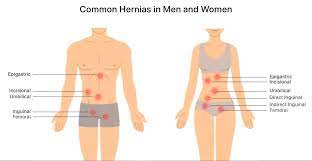What is Weight Loss Surgery & It's Types
Weight loss surgery changes the shape and function of your digestive tract. This surgery can help you lose weight and control obesity-related diseases. These conditions include diabetes, obstructive sleep apnea, and risk factors for heart disease and stroke.
Weight loss surgery in Delhi is also known as bariatric surgery. There are many surgical procedures, but they all help you lose weight by limiting the amount of food you eat. Some routines also limit the amount of nutrients you can absorb.
In the US, the most common weight loss surgery is sleeve gastrectomy. In this procedure, the surgeon removes most of the stomach to create a tube-shaped cuff.
Weight loss surgeon in Delhi is only one part of the overall treatment plan. Your treatment will also include advice on nutrition, exercise and mental health. You must be willing and able to stick with this plan long term in order to achieve your weight loss goals.
If you're considering weight loss surgery, you'll meet with several specialists who can help you decide whether weight loss surgery is right for you.
Types of Weight Loss Surgery
Gastric Sleeve Surgery
In sleeve gastrectomy, also called vertical sleeve gastrectomy, the surgeon removes most of the stomach, leaving only the banana-shaped portion, which is stapled closed. Sleeve gastrectomy Surgery in Delhi reduces the amount of food that can fit in your stomach, which makes you feel full more quickly. Removing part of the stomach may also affect hormones or bacteria in the gastrointestinal tract that affect appetite and metabolism. This type of surgery cannot be reversed because part of the stomach is permanently removed.
Gastric Bypass Surgery
Gastric bypass surgery in Delhi, also known as Roux-en-Y gastric bypass, is performed in three steps. First, the surgeon will hold your stomach together and make a small pouch at the top. Staple foods make your stomach much smaller so you eat less because you feel full faster.
The surgeon then divides the small intestine into two parts and connects the lower part directly to the small pouch of the stomach. Food will bypass most of your stomach and upper small intestine, so your body will absorb fewer calories.
The surgeon then connects the upper part of the small intestine to a new location in the lower part of the small intestine. This allows digestive juices in the stomach to flow through the part of the small intestine that has been diverted into the lower part of the small intestine so that the food can be fully digested. Bypass changes the hormones, bacteria, and other substances in the gastrointestinal tract, which can affect appetite and metabolism. Gastric bypass surgery is difficult to reverse, although a surgeon may perform it if medically necessary.
.jpg)
.jpg)
.jpg)
.jpg)

Comments
Post a Comment